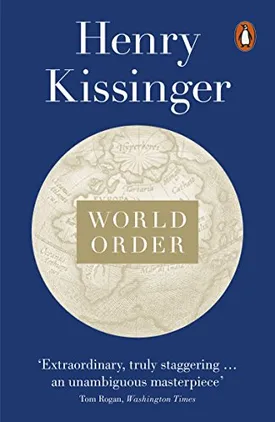Henry Kissinger
Henry Kissinger is one of the most influential foreign policy thinkers of the 20th century. He served as the United States’ Secretary of State from 1973 to 1975, and National Security Adviser from 1969 to 1975. During his tenure, he played a vital role in shaping the nation’s diplomacy and relations with the rest of the world.
Kissinger was born Heinz Alfred Kissinger in Fuerth, Germany, on May 27, 1923. He and his family were Jewish and fled Nazi Germany in 1938, resettling in the United States. A talented student, Kissinger studied at Harvard, graduating summa cum laude with a Bachelor’s in 1950 and a Doctorate in 1954.
Ever since, Kissinger has maintained a prominent presence in public life, through his numerous works of non-fiction and essays. His best-known works, such as “Diplomacy” and “On China”, champion realism while concentrating on the importance and effectiveness of diplomacy. Other prominent works, such as “Crisis”, “The White House Years”, and “World Order”, detail the former secretary of states’ thoughts on foreign policy during the Vietnam War.
Kissinger also believes that politics should be conducted as a game, as expressed by his famous saying: “It is always easier to make war than peace." He has written extensively about the need for balance in foreign policy, and how realist approaches can help create a more secure world.
These realist notions extend to his views on international relations, as expressed in his writings on the need for a balance of power between the United States and the Soviet Union, and his notion of an “international order” built around these two global powers. Kissinger heavily critiqued the “people’s movements” of the 1960s and 1970s, warning against their potential for destabilizing the international system.
Kissinger continues to influence modern foreign policy thinking. To this day, he is cited by commentators, politicians, and academics, both as a source of wisdom and as a cautionary tale. His works continue to be studied worldwide, and many of his policy prescriptions remain relevant.
Though Kissinger is seen as controversial, his writings and analyses are essential to understanding the history of the modern world. Whether one agrees with his views or not, one cannot deny the importance of his contributions to foreign policy discourse. While time moves on and new management styles come in and out of popularity, Kissinger’s works remain an essential part of the global dialogue on international relations.

